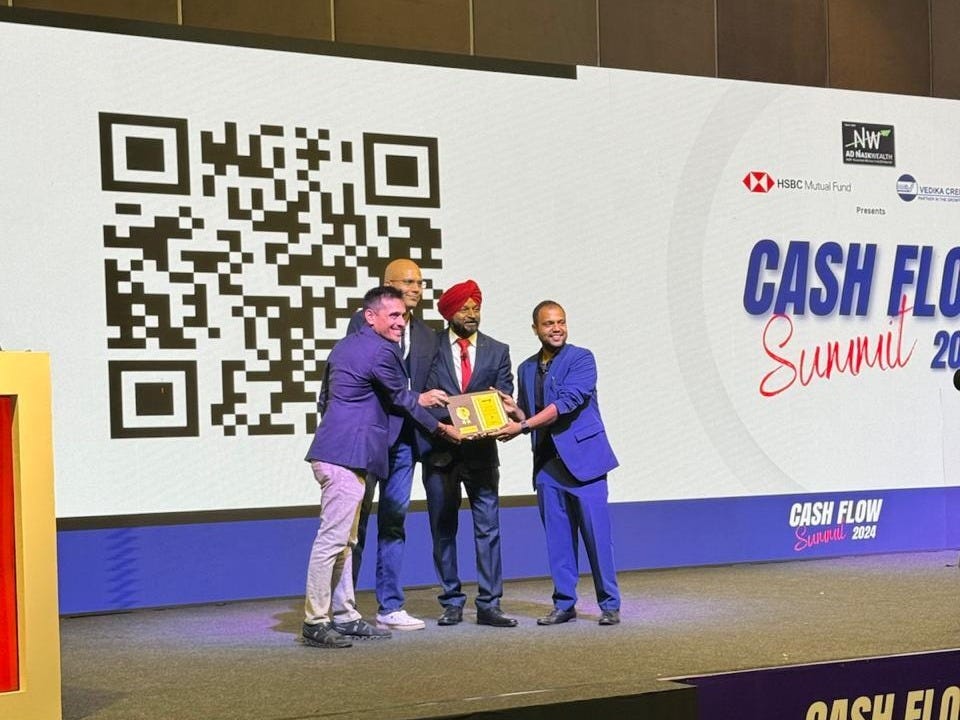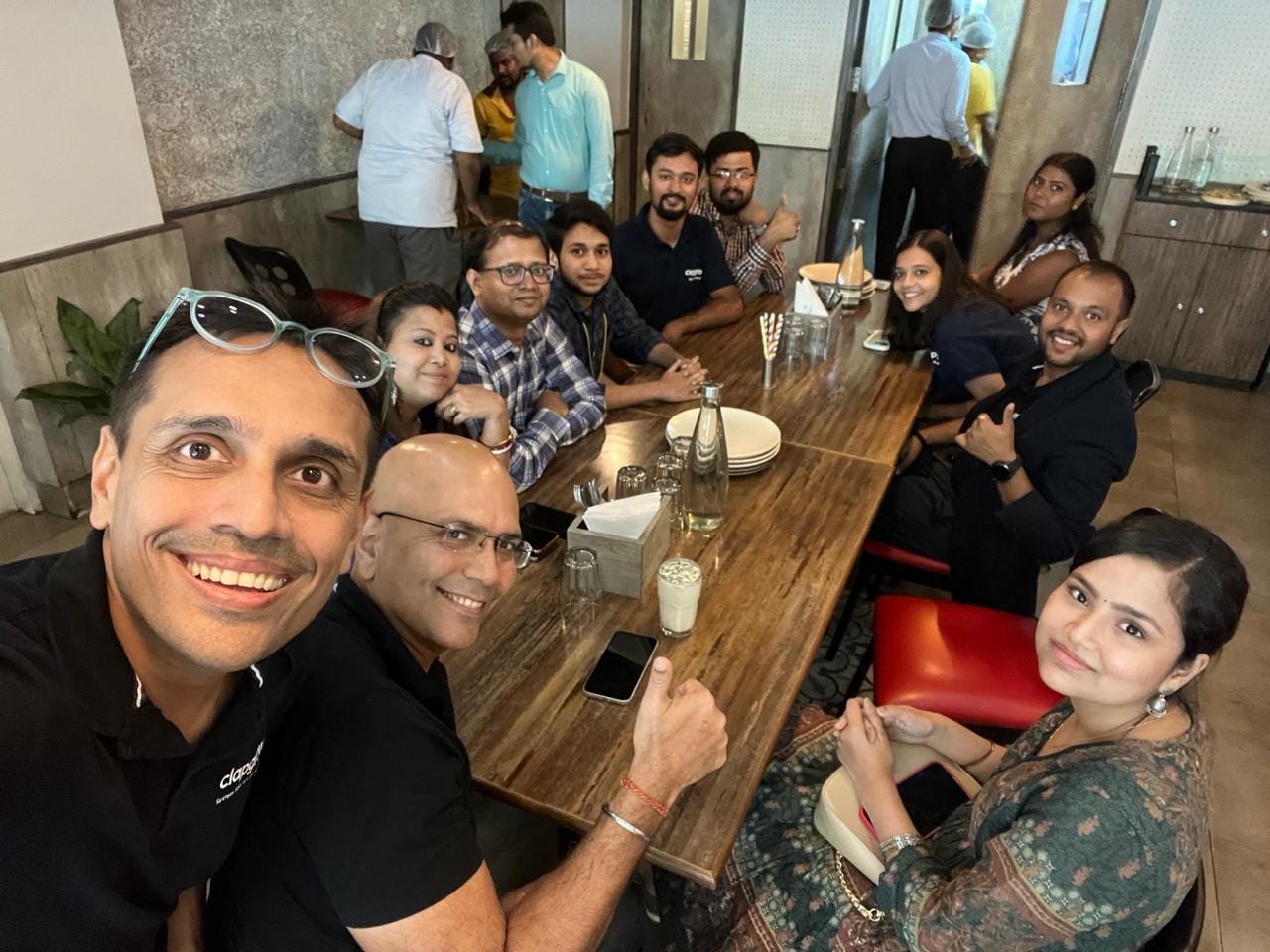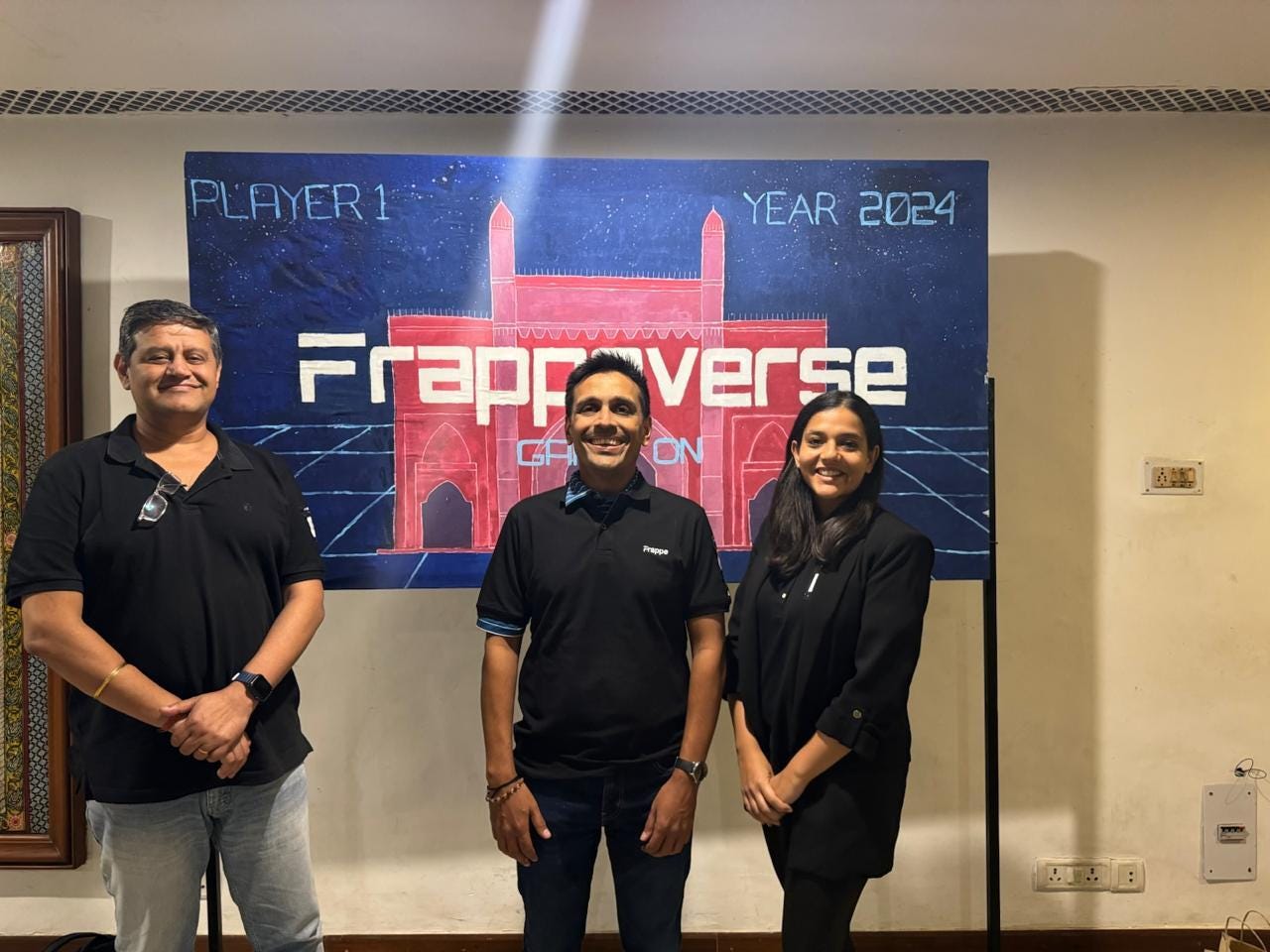The Scientist Who Built a Startup: The Story of Jai & Clapgrow
Meet Jai, the founder of Clapgrow—a platform born from his passion for simplifying business operations and his belief in solving one problem at a time.
Jai is an entrepreneur driven by a passion for solving real-world problems and creating meaningful change.
With a background in research science and a brief stint in academia, Jai took a bold leap into the entrepreneurial world, founding Clapgrow—a platform designed to streamline workflows and transform how small businesses operate.
Hi, I’m Jai, and if there’s one thing my journey has taught me, it’s that life rarely goes as planned—and that’s okay.
I started out as a research scientist in the U.S., ended up running my family business in India, failed at my first startup, and now I’m building Clapgrow—a platform helping small businesses streamline their workflows.
Looking back, every twist and turn in my career has shaped who I am today—a reader who devours 20-30 books a year, a yoga practitioner, a golfer, and most importantly, a problem solver.
Here’s my story—no filters, just the lessons I’ve picked up along the way.
When Life Says “Pivot,” You Listen
Back in 2005, I started my career in the U.S. as a research scientist at Boeing while pursuing my PhD in computer science. It was fascinating work, but I hit a wall after a year and a half.
I realised I didn’t want to spend years writing papers. It felt like I was chasing something that wasn’t mine to begin with.
Coming from a family of businessmen, I knew that if something didn’t feel right, I had to pivot. So, I left my PhD program with a master’s degree and started working.
Those years were intense. I was surrounded by some of the most brilliant people I’d ever met, and the pace was relentless. But it taught me discipline, focus, and how to perform in high-pressure environments.
My First Startup—and My First Big Failure
After a few years in the U.S., I felt this pull to return to India. I wanted to do something meaningful here, so I started my first venture: Nawal Foods & Nawal Organics.
The plan was to export fresh herbs, but honestly? I had no idea what I was getting into. I underestimated how tough logistics are in India and didn’t fully understand my customers.
It flopped. And it wasn’t just a professional failure—it felt personal. I was disappointed in myself and doubted whether I was cut out for entrepreneurship at all.
So, I went back to my family business. It gave me some breathing room, but I didn’t want to just “manage” things. I wanted to bring structure and innovation to the business. Over six to seven years, I introduced systematic processes and technology, transforming how we operated.
That’s when I noticed something: small businesses often revolve around the owner. It’s exhausting and lonely, and scaling is really hard. I knew there had to be a better way, and that’s when the idea for Clapgrow started forming.
Clapgrow: Solving One Problem at a Time
Clapgrow didn’t start as some grand vision. While working in the family business, my team and I built a workflow tool to simplify our operations.
Then people started asking us, “Why not offer this to other businesses?” So, we refined it a bit and suddenly had a product.
Today, Clapgrow is a workflow and task automation platform used by over 50 companies. But for me, it’s always been about solving one problem at a time.
Every feature we’ve built has come directly from customer feedback or challenges we faced ourselves.
I keep it simple:
Does this solve a real problem for small businesses?
Does it deliver actual results, not just fancy features?
If the answer is yes, we move forward. If not, we don’t waste time.
Some Tough Decisions
One of the hardest things I’ve had to learn as a founder is when to say no. It’s not easy, especially when opportunities—or what seem like opportunities—come knocking.
But I’ve realised that saying yes to everything often leads to distraction and dilution.
For instance, we’ve had potential customers approach us who only wanted a tool to check off a box, not a solution that would transform their workflows. It was tempting to take them on, especially in the early days when every customer felt like validation, and we needed revenue.
Similarly, I’ve had to resist the pressure to raise funds prematurely. Raising money is often seen as a milestone, but I’ve come to see it differently. If you don’t have Product Market Fit (PMF), raising funds can push you in the wrong direction. You end up scaling problems rather than solving them.
For Clapgrow, I wanted to ensure we had a solid foundation before bringing in external expectations- be it from customers or investors.
Building a Culture that’s True to My Heart
At Clapgrow, we’ve adopted a 12-week sprint model to manage our goals and stay focused. Here’s how it works: every 12 weeks, we set clear, achievable goals and put all our energy into hitting them.
I tell my team, “For these 12 weeks, this is our world. Anything beyond this? It doesn’t exist.” This keeps us from feeling overwhelmed by the bigger picture and helps us stay in the moment. Once the sprint ends, we regroup, reflect, and plan for the next one.
Of course, not everything goes according to plan. Some weeks are great, and others feel like nothing is working. And that’s normal. I’ve worked hard to create a culture where it’s okay to have bad days—or even bad weeks—as long as we’re moving forward overall.
What I’ve realised is that building a business is about showing up every day, putting in the work, celebrating small wins and focusing on progress over perfection. At the end of the day, it’s not about how fast you go—it’s about making sure you’re heading in the right direction.
Golf, Books, and the Art of Staying Sane
When I’m not working on Clapgrow, you’ll often find me on the golf course or with a book in hand.
Golf, in particular, has taught me so much about life.
In 18 holes, you live an entire lifetime. You’re not competing against anyone but your own mind. Every swing is a decision, much like every step in life. You mess up, you recover, and you keep going.
As for books, they’re my constant companions. Some of my favourites include The Sialkot Saga by Ashwin Sanghi and The Legend of Goddess: Invoking Sri Suktam by Om Swami. The latter has been a source of peace and clarity for me as a founder.
My Advice to Fellow Founders
If there’s one thing I’ve learned on this journey, it’s this: fail fast, fail cheap, and don’t start out trying to build something “big.”
I know it sounds counterintuitive, especially in a world where we’re constantly told to “think big.” But in reality, big things rarely start that way. The best ideas often emerge from small, practical solutions to real problems—your own problems.
When I started Clapgrow, I wasn’t trying to create a revolutionary product. I just wanted to solve a specific challenge I was facing in my family business. We built a small tool to streamline our operations, and that tool turned out to be something others wanted, too. That’s when I realised if it works for me, it might work for others.
And that brings me to the next thing—small wins matter. Celebrate them because they add up in ways you don’t see right away. Maybe it’s landing your first customer, improving one workflow, or getting positive feedback from a client.
Each small win proves you’re on the right track, but I won’t sugarcoat it- setbacks will happen. Keep focusing on solving real problems and keep learning along the way; you’ll find your own path.
That’s my story so far.
At Razorpay Rize, we’ve come to really admire Jai’s approach to building Clapgrow. Instead of chasing big, unrealistic goals right from the start, he focused on solving a real problem he was facing himself.
Jai’s journey is truly inspiring, and there’s so much to learn! His willingness to learn from failure and commitment to making a difference remind us that entrepreneurship is about taking small, meaningful steps (one step at a time) and staying true to your purpose.







